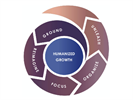Holmes Report 21 Feb 2016 // 6:51PM GMT

Amazon has reclaimed the top spot in the the Harris Poll’s 17th annual Reputation Quotient summary report, marking the eighth consecutive year the online retailer has ranked in the top ten, while Volkswagen Group dropped to the bottom of the report, which offers corporate reputation ratings for the 100 most visible companies in the US, as perceived by the general public.
The top ten corporate reputations are (in order) Amazon, Apple, Google, USAA, The Walt Disney Company, Publix Super Markets, Samsung, Berkshire Hathaway, Johnson & Johnson, and Kellogg Company. USAA and Kellogg Company are newcomers to the RQ top 1o, while Berkshire Hathaway returns to the top ten for the first time since 2008 and Disney returns after slipping to #12 in 2015.
“Best-in-class companies demonstrate that corporate reputation matters – to your customers, employees, potential hires, business partners and investors,” says Sarah Simmons, senior reputation consultant at Nielsen, which owns The Harris Poll. “Not only does it matter, but corporate reputation is critically important to measure and understand in the context of your company’s business goals.
“A positive reputation can provide competitive advantages and help your company achieve its objectives while a poor one can obstruct your ability to execute against your business plan.”
The RQ measures companies’ reputation strength based on the perceptions of more than 23,000 Americans across 20 attributes classified into six corporate reputation dimensions: social responsibility, emotional appeal, products and services, vision and leadership, financial performance, and workplace environment.
In the wake of its recent emissions scandal, Volkswagen declined steeply, dropping 20.5 points overall from a “very good” (75.21) score in 2015[1] to a “very poor” (54.75) rating in 2016. The only company to receive a “very poor” RQ rating this year, Volkswagen Group also fell more than 25 points on emotional appeal (includes attributes of trust, admiration and respect) and 20 points on social responsibility (includes attributes of environmental and community responsibility).
CVS (-5.0) and Starbucks (-4.6) also experienced declines, dropping from “very good” to “good” ratings. JCPenney, which showed the largest RQ increase in 2015, fell four points to a “poor” RQ score.
Each company in the RQ study was also rated by opinion elites, a sub-segment of the general public who are more informed, more engaged and more involved in current issues. Companies like UPS, Costco, Meijer, The Coca-Cola Company, and BMW have a better reputation among Opinion Elites than the general public and all appear on the Opinion Elites’ top ten—although Apple, Amazon and Google hold the top three spots.
“Eighty percent of the companies in the RQ study have a better reputation with Opinion Elites than among the general public,” says Simmons. “Companies that have a lower RQ rating with Opinion Elites than with the general public have had significant and high-profile reputational issues in recent times, reinforcing the lesson that having a plan and managing communications with this highly influential audience is essential.”
According to the RQ study, nearly three-fourths (72 percent) of Opinion Elites say they investigate corporate behavior before buying, while more than half (53 percent) of the general public indicated they proactively seek information about the companies they do business with. Similarly, 57 percent of Opinion Elites say they’ve decided not to do business with a company because of something they learned about how it conducts itself while more than one-third (37 percent) of the general public indicated the same.
“Corporate America take note: the majority of US consumers are seeking information about your practices, and in some cases, rejecting companies they interact with because of what they learn,” says Simmons. “Putting muscle behind messages that support your reputational equity with the public has never been more important.”
The biggest risks to corporate reputation are lying or misrepresenting facts about a product or service, or intentional wrongdoing or illegal actions by corporate leaders; both scenarios were cited by 80 percent of Americans surveyed. Other risks to reputation damage include security or data breaches (74 percent), product recalls due to contamination that may cause illness (66 percent) and unfair workplace conditions and culture (64 percent).


































.jpg)






.tmb-135x100.jpg)










